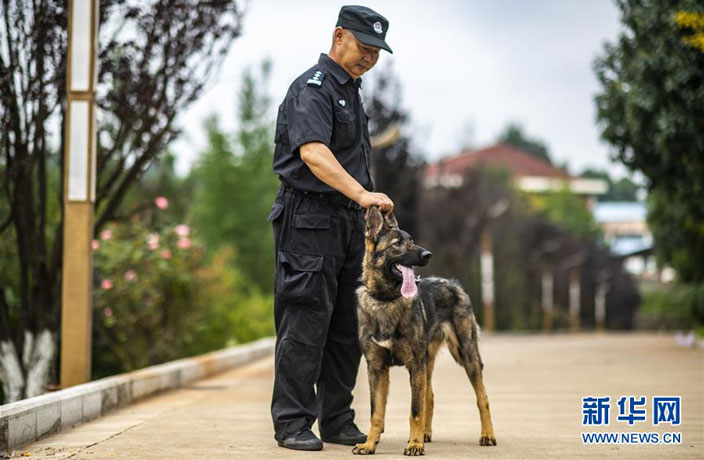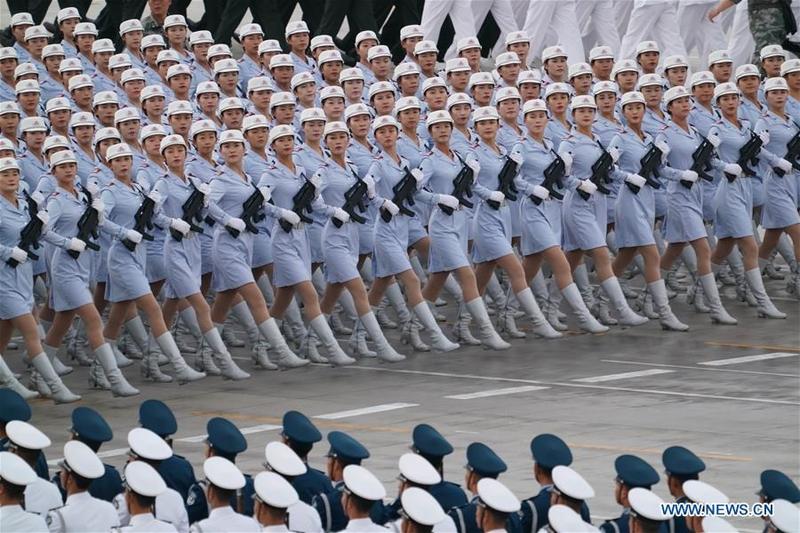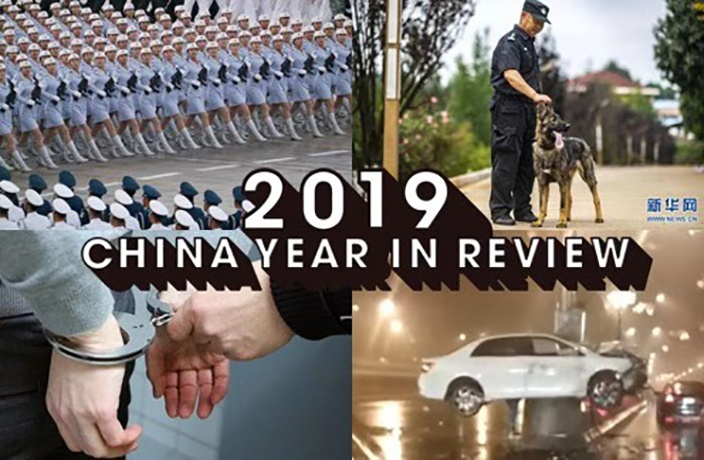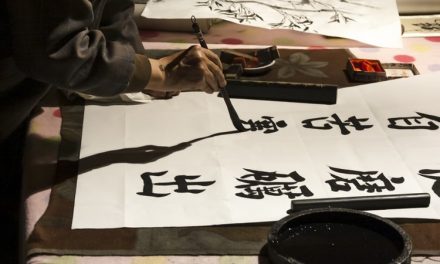The good, the bad and the ugly. The weird and the wacky. As is the That’s tradition, we’ve compiled our series. So sit back, relax and relive the highs and lows of the last 12 months.
1. Huawei Posts NYE Tweet Via iPhone, Internet Blows Up

The year got off to an amusing start for tech watchers, as Huawei lost some serious credibility after publishing a New Year’s Eve post on Twitter using an iPhone. The post, which was made by the company’s official Twitter account at 11.31pm on December 31, wished everyone a happy new year and gave their resolution for 2019, “To give you more reasons to connect to those you care about.” Directly under the video in the right-hand corner read ‘via Twitter for iPhone,’ an automated message that is displayed whenever content is posted through the social media platform’s iOS app. The internet promptly blew up. Oops.
2. China’s First Cloned Police Dog Ready for Duty

Eight-month-old Kunxun passed the police’s dog assessment trial in August. What makes it something to woof about? Kunxun was cloned from a 7-year-old police dog, Huahuangma, a Kunming wolfdog described as an “outstanding canine detective” and celebrated for helping to solve 12 murders and 20 other criminal cases (if you’re gonna clone, clone from the Sherlock Holmes of hounds, right?). And as if that was not cool enough, the Kunming wolfdog breed is the result of selective interbreeding between a wild wolf and domesticated dog in China in the 1950s for military and police use. Criminals – beware of the dog!
3. Happy 70th Birthday China!

The 70th anniversary of the founding of the People’s Republic of China was observed with a series of ceremonial events, including the largest military parade in Chinese history on National Day, October 1. All the big guns were out in Beijing; former General Secretaries of the Communist Party Hu Jintao and Jiang Zemin were in attendance, Premier Li Keqiang was official master of ceremonies for the parade, and President Xi Jinping addressed the nation before inspecting the formations along Chang’an Avenue. Shengri kuaile Zhongguo!
4. ‘Tsunami’ Injures 44 People at China Water Park

Swimmers in Northeast China’s Jilin province saw their lives flash (and splash) before their eyes in July when a colossal swell crashed through a crowded wave pool at a local water park. As the video went viral, rumors circulated that a drunk old wave machine operator “hit the wrong switch.” Whatever the cause, 44 people were injured, with seven hospitalized for injuries ranging from fractured ribs to a broken foot. Fortunately, nobody was killed as a result of the incident, the horror of which you can relive right here.
5. China’s Illegal Drug Crackdown

An illegal drugs crackdown saw bars, clubs and private residences raided across the country, with there has been a marked increase in detentions, deportations and five-year travel bans imposed on those found guilty of possession of, or testing positive for, drugs in China, especially category B drugs such as marijuana (and it doesn’t matter which country you did drugs in – if you test positive in China, you’re smoke). Meanwhile, Canadian Robert Lloyd Schellenberg was sentenced to death for drug smuggling in Liaoning. The message is clear: Just say no.
6. Chinese People Throwing Coins into Plane Engines

In February, a 28-year-old man was kicked off a plane in Anqing for throwing coins in an aircraft engine. In March, two female passengers were detained in Jinan for the same superstitious and perilous behavior. In April, a man was caught in the act in Wuhan after his mother told him to do it for good luck for his daughter’s first flight. The list goes on… but why? It’s rumored that the coin-tossing superstition is borrowed from the Western tradition of throwing coins into fountains. How exactly the jump was made to coins in aircraft engines is not clear, but what is apparent is that a number of misguided Chinese air travelers believe throwing a circular piece of metal into a jet engine will bring good luck (rather than premature death).
7. China’s First Costco Closes On Opening Day

Anticipation ran high when Costco announced they would open their first China warehouse in Shanghai earlier this year. And when it opened its doors on August 27, people went wild. Quite literally. By 11am, there were so many people at the store – snarling and snatching at products like their lives depended on it – that workers started regulating the number of shoppers allowed inside, forcing many to wait in line for up to two hours just to get in. By 11.29am, members (tens of thousands of people signed up) received a message warning them to avoid visiting the outlet. And by 2.13pm, Costco was forced to shut up shop.
8. Bizarre Drunk Driving Accident In Shanghai

A video went viral of a white car precariously perched upon a concrete barrier on an elevated highway in Shanghai. The scene was so bizarre that passing drivers couldn’t help but record the spectacle, while wondering how the car got there. It turns out it was the result of a drunk driver’s sudden acceleration, causing his car to climb onto the barrier. Luckily the driver was the only person that suffered slight injuries. Watch the bizarre video right here.
9. China Opens 5G for Commercial Use

China’s three main mobile carriers began offering 5G mobile services to the public this fall. The lightning-speed service arrived for consumers just months after China Mobile, China Telecom and China Unicom were granted commercial 5G licenses by the Ministry of Industry and Information Technology. China will be among the first in the world to provide the technology for mobile phone users. Carriers in South Korea and the US have already launched 5G services; however, industry executives have said China is gunning for nationwide coverage in 2020. Read more about 5G in China right here.
10. Teaching in China Got Risky for Foreigners

The writing is on the wall: Being a foreign teacher in China is not as easy as it used to be, and the days of teaching here without the appropriate visa or education credentials appear to be numbered. On July 12, China’s Ministry of Education released strict new rules for online education companies as the Central Government looked to further crack down on the massive after-school tutoring industry. This included a law requiring that online education institutions publicly display the personal information of their foreign teachers in a “prominent location” on the platform. This includes teachers’ names, pictures, previous academic and professional experience and teaching qualifications. Since early July, we started noticing what seemed like an uptick in teacher detainments, along with several government announcements related to increasing education oversight and the policing of unqualified workers. So don’t be left at the back of the class – get your paperwork in order.
For more of our 2019 China Year in Review series, click here.






Recent Comments